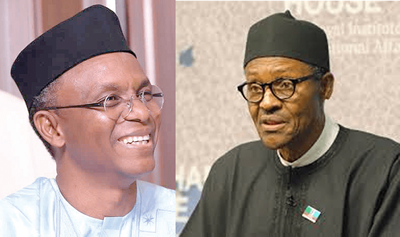Former Governor of Kaduna State and immediate past chieftain of the All Progressives Congress (APC), Nasir El-Rufai, has revealed that President Bola Tinubu never liked him, even while they were in the same political party.
Speaking on Prime Time, a flagship political programme on Arise Television Monday evening, El-Rufai opened up about the power struggles within the APC, his political allegiance to former President Muhammadu Buhari, and his mistrust of the current leadership of the Independent National Electoral Commission (INEC).
“Bola Tinubu never really liked me, but we never really got along. In the party, I was Buhari’s boy,” El-Rufai said during the explosive interview, offering rare insight into the longstanding political rift between the two APC heavyweights.
READ ALSO:
El-Rufai, who played a major role in APC’s 2015 and 2019 electoral successes, added that he was more aligned with Bisi Akande, a former Osun State Governor and founding chieftain of the APC.
“The person I got along with was Baba Akande,” El-Rufai noted, distancing himself from Tinubu’s inner circle.
El-Rufai also cast doubt on the independence and neutrality of the current INEC leadership under Prof. Mahmood Yakubu. He expressed skepticism over whether the electoral body would ever register a new political coalition that could effectively challenge the ruling party in 2027.
“I never believed that INEC under Mahmood Yakubu would register a new coalition political party,” he said, drawing a stark contrast with former INEC Chairman Prof. Attahiru Jega, under whose tenure the APC itself was registered in 2013.
This statement comes as political realignments intensify ahead of the 2027 general elections, with El-Rufai now a leading voice in the anti-Tinubu coalition and a member of the Social Democratic Party (SDP).
El-Rufai’s candid remarks reflect growing tensions within the APC and signal a deepening divide between old allies-turned-rivals. His departure from the APC, open criticism of President Tinubu’s administration, and alignment with emerging opposition forces place him at the center of Nigeria’s evolving political landscape.















